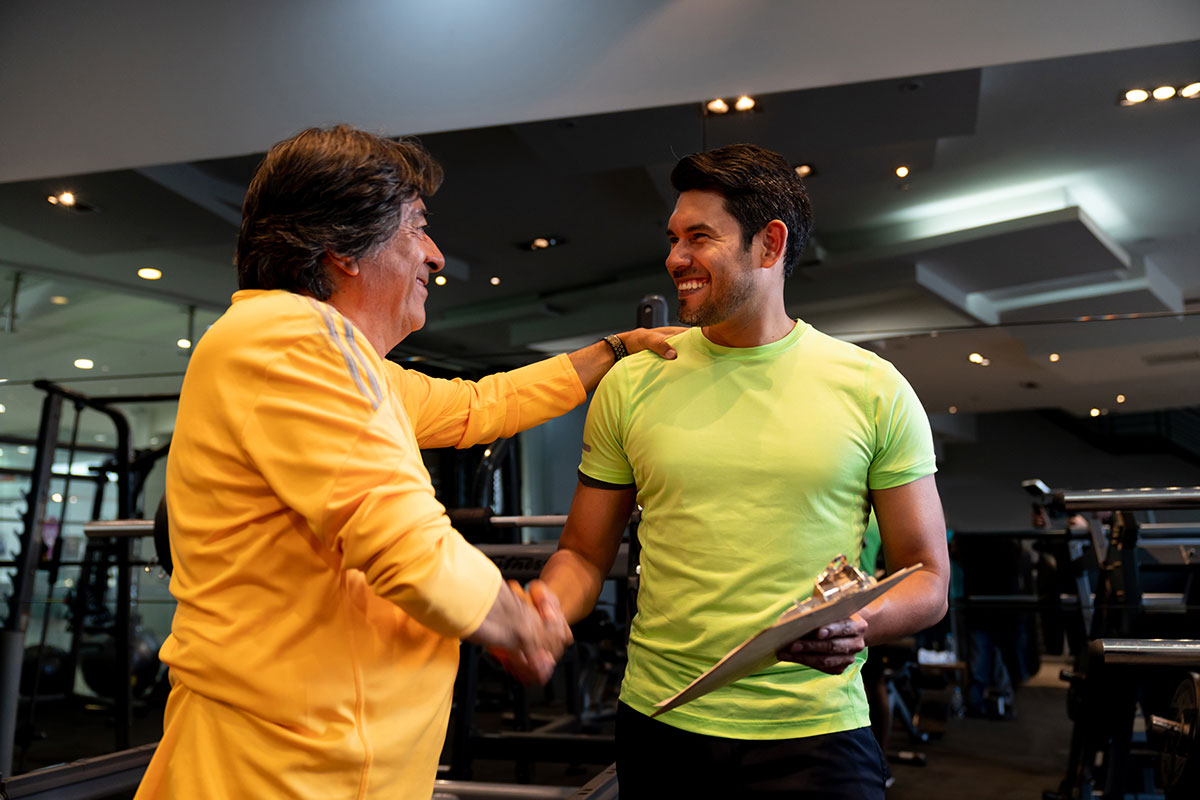[ad_1]
As health and exercise professionals, we often shake our heads, feeling frustrated as we try to unlock the door of change for our clients. We try key after key, and yet nothing works. The door remains locked as our client pleads for us to set them free. Fueling our frustration is the knowledge that our expertise (our keys) across a wide range of scientific programming and protocols have unlocked many doors in the past. The harder we both work, the faster we sink into the quicksand of despair.
What if the door for this client can only be unlocked from the inside? Change is, after all, an inside job. While we may be experts in many things, the client is the expert on themself. The client has the key inside them, they are unique and only they can unlock their door to the sustainable change they seek. What, then, is our role? We can neither give them the key nor simply tell them that the key resides inside them. As our frustration meets this realization and futility grips us, what are we to do?
We adapt and rethink our approach from simply seeking the program and protocol that best fit our client to facilitating their ability to uncover, discover and deploy their unique personalized key to change. When we choose to use the power of curiosity combined with non-judgment to guide our questions, listening and interactions with our clients, everything changes. Helping our clients embrace a curious approach to their own health and well-being is foundational to success. Miller and Rollnick, the creators of motivational interviewing, state that retaining genuine curiosity and compassion is the raft upon which all else floats (Miller and Rollnick, 2013).
Curiosity fortified with non-judgment provides us with an unshakeable foundation on which we can collaborate and engage our clients in a way that supports their ability to discover their unique personal key to the change they seek. Non-judgment is about acceptance, which is a core component of motivational interviewing. Non-judgment and acceptance involve prizing the inherent worth and potential of every human being (Miller and Rollnick, 2013). Psychologist Carl Rogers referred to this type of acceptance as unconditional positive regard characterized by recognizing another person as separate, unique and worthy in their own right. When people experience themselves as unacceptable, they are immobilized, and their ability to change is diminished or blocked. Conversely, people experiencing acceptance become free to change (Miller and Rollnick, 2013).
You can prepare yourself to cultivate curiosity by:
- Reminding yourself that you don’t have to be right, you just have to be curious.
- Considering it an asking moment rather than a teaching moment when a client asks you a question.
In addition, use statements and questions such as the following:
- Where’s your energy settling? What would you like to dive into?
- What if we see what’s under this rock?
- It seems as though there was one more advantage you mentioned to your current environment…
- How does that show up for you?
- If it’s O.K. with you, let’s not talk about the goal. Instead, can you tell me about your relationship to it?
- What does it feel like to slip that on?
- Take me to that place…
- I am hearing you have experience with “that.” Please share with me a time you were experiencing success.
- What do you sense would be applicable from then to now?
- Which of your personal strengths can we bring to bear on this?
Clients often show up to us in search of a superhero. Meet them with non-judgment powered by curiosity to uncover and ignite the champion within them.
References
American Council on Exercise (2019). The professional’s guide to health and wellness coaching, American Council on Exercise.
Miller, W. and Rollnick, S. (2013). Motivational Interviewing: Helping People Change (3rd ed.). New York: Guilford Press
Rogers, C.R. (1995). A Way of Being. Houghton Mifflin Harcourt.
Want to Design Exercise Programs that Help Train the Brain?

[ad_2]
Source link


